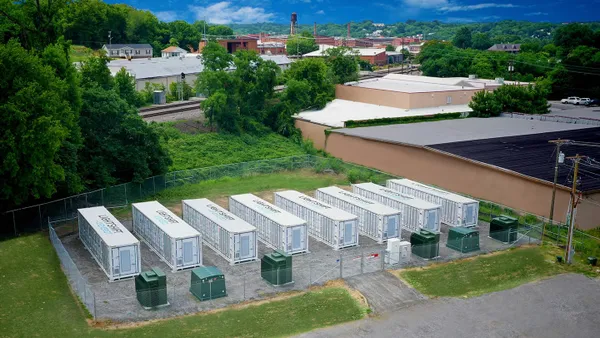Dive Brief:
- Hawaiian regulators late last week issued an order reversing course on some of the conditions they placed on the approval of Hawaiian Electric's (HECO) proposed power purchase agreement (PPA) with a 185 MW/565 MWh storage project on Kapolei, Oahu — a move that was welcomed by the utility.
- The Kapolei storage project is part of HECO's plan to retire and replace the 180 MW AES coal plant in September 2022. However, the utility had argued in a motion last week that the conditions placed by regulators on the project's approval would make it "nearly impossible" to move forward.
- The new order addresses most of HECO's concerns about the conditions placed on the Kapolei project's operation, utility spokesperson Jim Kelly said in an emailed statement. "Hawaiian Electric appreciates the commission's prompt response and its flexibility as we both work to deliver the best possible outcome for customers," Kelly added.
Dive Insight:
The Hawaii Public Utilities Commission (PUC) adopted nine conditions as part of its approval of the Kapolei project PPA. These include requiring the utility to forgo performance incentives, as well as establishing deadlines for the financial retirement of various fossil fuel plants. But in a motion for reconsideration filed with the commission last week, HECO argued that some of the conditions could cause problems for the project's development.
More broadly, the utility also warned that the conditions would send a chilling message to future developers, "that will likely have a profound and highly detrimental impact on Hawaii's renewable energy and energy storage market for years to come."
In its order issued late last week, the commission said the conditions it outlined were meant to ensure "the most beneficial utilization" of the Kapolei project, which is expected to cost over $500 million. Regulators have raised concerns in the past over HECO's plans to charge the Kapolei storage facility with fossil fuel generation.
However, having reviewed HECO's arguments, regulators agreed to revisit their initial decision. Among other changes, the commission opted to remove a condition requiring the utility to forgo certain performance incentives tied to renewables projects, which the utility said could provide it up to $1.7 million. The PUC noted that it has issued a separate order requiring the utility to track and report on any customer savings that are lost as a result of delays to renewables projects currently in development, and will address the question of incentives in either that or other proceedings.
Regulators also modified a condition instructing HECO to "financially retire" some of its fossil fuel plants on certain dates; while the commission continues to require that two units of the Waiau oil-fired plant be financially retired by 2024, it removed requirements for other units, saying it would instead look at those plans as part of its integrated grid planning docket.
The commission carefully reviewed the motions for reconsideration filed by HECO as well as the project's developer, and issued a decision reconsidering and/or clarifying several of the conditions of approval, PUC Chair James Griffin said in an emailed statement.
"This battery project is projected to cost Oahu customers over $500 million through the twenty-year contract term. The modified conditions of approval will ensure the benefits promised by Hawaiian Electric are received by customers and will maximize customer value from this significant investment in the near-term while closing the AES coal plant, as well as over the remainder of the contract term," Griffin added.
While the commission reversed course on many conditions, it also signaled it would handle some in other dockets, said Kylie Wager Cruz, staff attorney with Earthjustice.
"This is a priority that the commission seems to be really focusing on, making sure that HECO makes good on its promises to retire fossil fuel plants and underscoring the value that renewable energy projects and small-scale projects bring to the table," she said.














